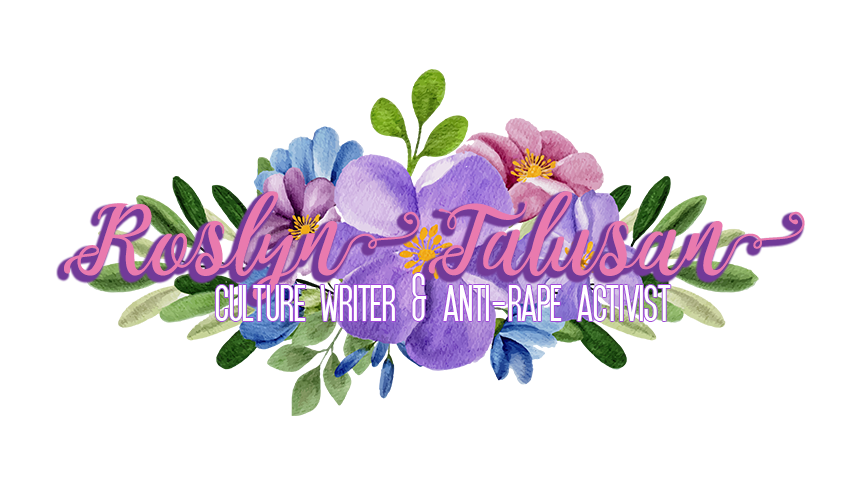Author’s Note, January 2022: Wear Your Voice Magazine has since ceased operation and the website that originally published this piece is no longer available. As such, I’m republishing the entirety of this piece on this blog. An archived snapshot is available here, and should the website become available once again, this content will be removed.
[TW- mentions of sexual assault, eating disorders and PTSD]
Last week, Kesha finally announced to the world that her much-anticipated third studio album, “Rainbow”, would be released this summer. This is her first album since she released “Warrior” in November 2012, and her first artistic work since the start of her ongoing legal battle with her producer and alleged abuser, Dr. Luke (a.k.a. Lukasz Gottwald).
To recap, Kesha began treatment for an eating disorder in January 2014, and in the following October, filed a lawsuit against Gottwald alleging physical, verbal, emotional, and sexual abuse. Gottwald counter-sued for defamation (where’s the eye-roll emoji), arguing that Kesha was fabricating her case simply to escape her contract.
One of the most common reactions to a survivor coming forward about their sexual abuse is to accuse them of doing it for money, attention, revenge, or some combination of all three. Victim-blamers paint survivors as hateful, manipulative, lying demons, while their abusers are pitied and treated with compassion, innocent until proven guilty. This misogynistic stereotype is rooted in how society often frames [women] as irrational and spiteful, and those stereotypes are one of the many things perpetuating the rape culture that we live in.
“Praying”, the first single off “Rainbow”, contradicts the belief that survivors are full of hatred and spite – the song and video exude positivity and empathy. In an essay published on the release date of the single, Kesha writes that the song is about coming into her newfound strength after surviving the brutal hell that Gottwald put her through. The accompanying video is a metaphor for her path to healing and recovery, and speaks to the emotional struggle that is post-traumatic stress disorder after abuse.
As a survivor myself, this song brought up a lot of feelings for me. I know firsthand how painful it is to simply exist in the aftermath of experiencing sexual violence. That pain is only amplified when someone accuses you of making it all up for some ulterior motive. It minimizes what you’ve gone through and implies that surviving trauma is something you can simply forget about, and that you chose not to for some materialistic, petty gain. It’s so much bigger and more complex than that. For some survivors, telling their truth and seeking justice can be a crucial part of recovery.
In the weeks immediately following my first sexual assault, my world felt like it was monochromatic. My mood didn’t exist on a spectrum, but would tip from one extreme to the other within seconds—entirely numb, void of any feeling, or sharp, hot stabs of irrational panic and paranoia. It was hard to live; to breathe; to exist. Death would have been a gift I welcomed with open arms. Kesha articulates this painful helplessness so beautifully in the opening monologue to the “Praying” video: “Please just let me die. Being alive hurts too much.”
Being betrayed so intimately, and having such intense suffering and pain inflicted on you by another human isn’t something that you can just get over. Your entire world changes and your perception shifts. You become acutely aware of some of the ugliest aspects of humanity, and it changes your very being irrevocably. Survivors literally do not consent to such an earth shattering change. To have the person who abused you in the first place–or someone who wasn’t even there–accuse you of coming forward about your pain for some malicious motive is not only painful, it’s insulting.
It takes a remarkable amount of strength and resilience to overcome trauma. For me, I developed that strength and resilience by sharing my story and holding my rapist accountable for the psychological damage he inflicted on me. Becoming an advocate for sexual violence survivors and trying to affect change that could prevent someone from ever experiencing what I did is my way of living with my trauma. I may not ever forget or change what happened to me, but using my experience to support other survivors helps to transform negativity into something positive.
Speaking my truth comes from a place of empathy and compassion for other people who have survived the kind of trauma I have. It is the exact antidote to sexual violence, an act of apathy and selfishness. Choosing to hold my rapist accountable has never been about ruining his life or attracting attention–it has always been about loving myself by advocating for my health and safety, and demanding the justice I deserve for being put through the psychological hell of sexual violence. The assumption that survivors only act out of the desire for materialistic gain totally ignores the goodness that comes with healing after trauma.
“Praying” articulates the strength it takes to find lightness within, and it proves that survivors stand for something so much bigger than spite. Surviving and coping with trauma goes beyond that – after seeing the ugliest side of humanity, I knew I had to find its beauty once again if I wanted to survive. The message behind the song and the accompanying visual captures that process so poignantly and accurately. Kesha’s music is contributing to a shift in the narrative around sexual assault, and breaks down the stigma and terrible myths about survivors. I’m so grateful for her voice, and I can only hope that it encourages people to treat survivors with the compassion and empathy that we deserve.
